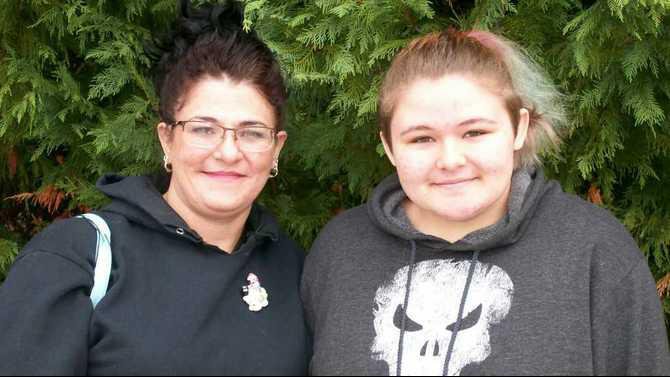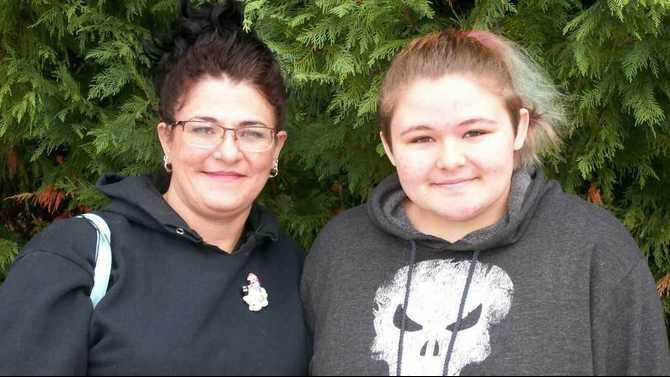Jovie Hardin loved her elementary school.
“South Salem was great,” she said. “I knew all the people. I was friends with all the teachers. I really, really liked South Salem.”
But things did not go well when she moved to middle school. There she encountered bullying and struggled to get the specific accommodations she needs for success given her special needs.
So, in the middle of grade six, she left her middle school and enrolled in the Georgia Cyber Academy (GCA). A year later, she is in grade seven, doing well, and again loving her school, she said.
“I am much happier than I was in middle school.”
Jovie and her mother, Trina Hardin, look forward to her completing middle and high school with GCA. After graduation Jovie thinks she would like to attend an art school, but in discussing her future said, “At 12 still have some wiggle room.”
According to Matt Arkin, GCA’s head of school, GCA is a public school founded in 2007. It operates statewide and currently serves more than 14,000 total students in grades K-12, including 280 residents of Newton County. It is largely funded by the State of Georgia and has an annual operating budget of approximately $75-80 million.
GCA offers curriculum from K12, Inc. which can be tailored to meet the needs of individual students.
“GCA leverages the individualized curriculum from K12, which is based on decades of education research,” Arkin said. “K12's academic quality is recognized by the nation's leading authorities, including Advancing Excellence in Education (AdvancED), College Board, and others.”
The curriculum is delivered online with supporting materials and equipment mailed to the student. Students attend online classes, but also complete offline learning activities. The Hardins report that about 90 percent of Jovie’s work is done or made available online. She is in her online classes from 8 a.m. to about 11:30 a.m. every day. After that she does her offline learning activities and homework. Jovie’s favorite subjects are social science and language arts/English.
She also participates in field trips as well as robotics and photography clubs. Such extra-curricular activities bring area GCA students together. For example, she recently participated in groups that visited Stone Mountain Park and attended a movie together.
When asked what sort of student would do well at GCA, Jovie said, “If you get distracted by other kids around you and cannot focus on what you are doing, this is really good for people like that.”
Trina added that GCA may be a good option for special needs students who do better studying at non-traditional times of the day saying, “GCA classes are all recorded and available 24/7.”
GCA teachers are state-certified and most have advanced degrees. On average, they have seven years of teaching experience in brick-and-mortar public or private schools before they started at GCA. Arkin said, “All GCA teachers are thoroughly trained in online instruction methods and receive ongoing professional development to stay current with advancements in online instruction.”
The student-to-teacher ratio varies depending on grade-level. In K-8 GCA averages 50 students per teacher and 40 in high school, but actual class size varies by grade and subject. The Hardins report that Jovie’s classes typically include about 100 students.
Each student has a learning coach, which is usually a parent. Trina Hardin is Jovie’s learning coach. “They have learning coach university,” Trina said. “They send learning coach books; kind of like a guide a teacher would get. I talk to her teachers now 100 times more than I did at her middle school. I can talk to them anytime I want. I can email them. I can call them.” Learning coaches aid their student’s learning, report attendance, and perform other individualized support tasks.
With regard to GCA support staff, Arkin said, “GCA provides a comprehensive set of support programs and personnel for students. Much of it is identical to any other public school, including guidance counselors or special education support. In addition, the school provides a robust set of counselors and other support individuals to ensure students remain engaged and on top of their studies.”
Applications for enrollment are still being accepted for the spring 2017 semester. As a public school, any student that wants to attend may do so, however, total enrollment is capped by the State of Georgia. Families may begin applying for the 2017-2018 school year in March. Application and other details are available at gca.k12.com.





